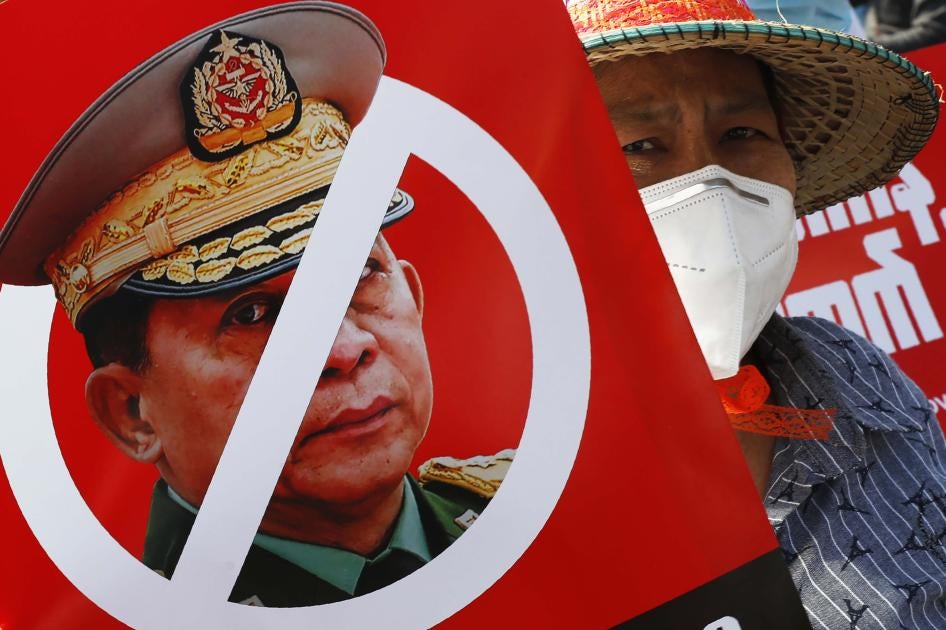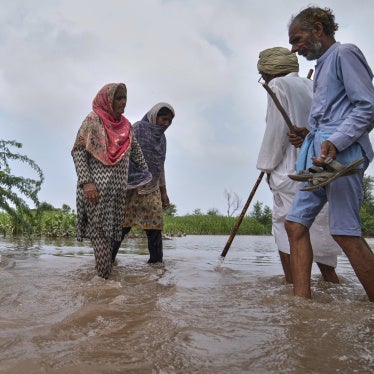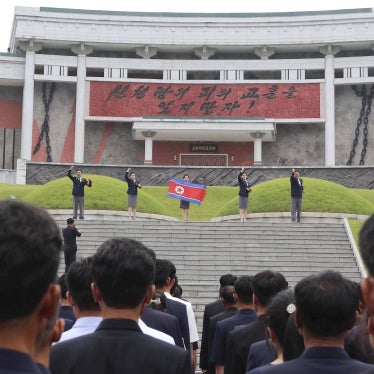On December 14, leaders of European Union member states are meeting in Brussels with leaders of the Association of Southeast Asian Nations (ASEAN) – with one exception. Myanmar is unrepresented. Sr. Gen. Min Aung Hlaing, who heads the junta put in power in Myanmar after a February 2021 military coup against a democratically elected government, was not invited.
Min Aung Hlaing and his junta security forces are responsible for countless atrocities against the opposition and ethnic minority groups amounting to crimes against humanity and war crimes. The authorities have executed political prisoners, unlawfully killed hundreds of protesters and bystanders, and detained more than 13,000 people. The military has bombed and shelled civilians and their villages and sharply increased the use of banned antipersonnel landmines. Since the coup, the junta has effectively been at war with its own people.
The EU has imposed several rounds of sanctions on both Min Aung Hlaing and his leadership, as well as on lucrative military-controlled conglomerates and companies that provide the military with revenues it needs to maintain its rule and carry out abuses.
But so far, the impacts of EU sanctions have been limited.
Why? Because other governments, notably the U.S. and U.K., haven’t coordinated closely enough or matched the EU’s stronger sanctions – in particular, on the military’s natural gas revenues and banks that process foreign payments for the extractive sector. Absent better coordination with the U.S. and other governments, EU sanctions simply cannot impose enough economic pain on the junta to compel the military to change its conduct.
The EU’s foreign policy chief, Josep Borrell, acknowledged in July that “bolder and stronger attitudes” were needed and that the international community “must continue to put all its economic and political forces under pressure on this junta…we must continue to apply pressure. It is the only possible way out of this conflict.”
EU leaders have been supportive of tougher action. The EU imposed a new round of sanctions in November. The U.S. imposed a small sanctions package at the same time, but has still not matched stronger and far more important sanctions the EU imposed in February.
Regrettably, however, some EU leaders – including most recently French President Emmanuel Macron – are still placing primary responsibility on ASEAN to take the diplomatic lead on actually negotiating with the military and resolving the crisis.
But neither the EU nor ASEAN can deal with the crisis in Myanmar alone.
In April 2021, ASEAN did manage to negotiate a five-point consensus with the Myanmar military, meant to lead to dialogue and de-escalation. But the military repudiated it within days and the abuses only increased. ASEAN leaders later barred Myanmar military leaders from ASEAN meetings and in 2022 began to criticize the junta more.
After the junta executed four pro-democracy activists in July, Malaysia’s foreign minister called the executions a “mockery” of promises to ASEAN, and in September its prime minister told the U.N. General Assembly that “the ASEAN ‘Five-Point Consensus’ cannot continue any longer.”
An October European Parliament resolution reflected a similar conclusion and called on ASEAN to take new approaches. It also urged the EU to adopt tougher sanctions and redouble coordination with ASEAN and other concerned governments on pressuring the military.
EU and ASEAN leaders should work to reach a new agreement for stronger cooperation on the Myanmar crisis. And ASEAN leaders should show support for sanctions – even if it must be privately – and urge the EU to press the U.S. to match EU sanctions.
For its part, the EU should urge ASEAN members to cooperate in enforcing sanctions in ASEAN jurisdictions. While U.S. and EU law obviously do not apply in ASEAN countries, it does apply to U.S. dollar and euro transactions in the international banking system, which utilize correspondent banks in the U.S. and EU. Sanctions, if they’re properly enforced, could apply to hundreds of millions of dollars the junta regularly receives for natural gas and other extractives, much of which comes from or is deposited into banks in ASEAN countries.
The EU – and any and all ASEAN governments that are willing – should in particular urge Thailand, an ASEAN member that purchases gas from Myanmar, and Singapore, where the military has bank accounts used to receive these funds, to agree to help enforce sanctions.
The EU should also urge ASEAN to consider suspending Myanmar from ASEAN.
The EU and ASEAN leaders should signal agreement on the need for a U.N. Security Council resolution imposing a global arms embargo on Myanmar, which purchases weapons from both China and Russia. Even if a resolution cannot overcome a Security Council veto, debate on the subject will further isolate the junta and help inspire tighter embargoes by individual governments and regional blocs.
New actions by the EU, ASEAN, the U.S., and other concerned governments need to be smart, strong, sustained, and coordinated. Myanmar’s generals are not going to change their conduct unless the cumulative cost of their refusal to do so grows too great to bear.










